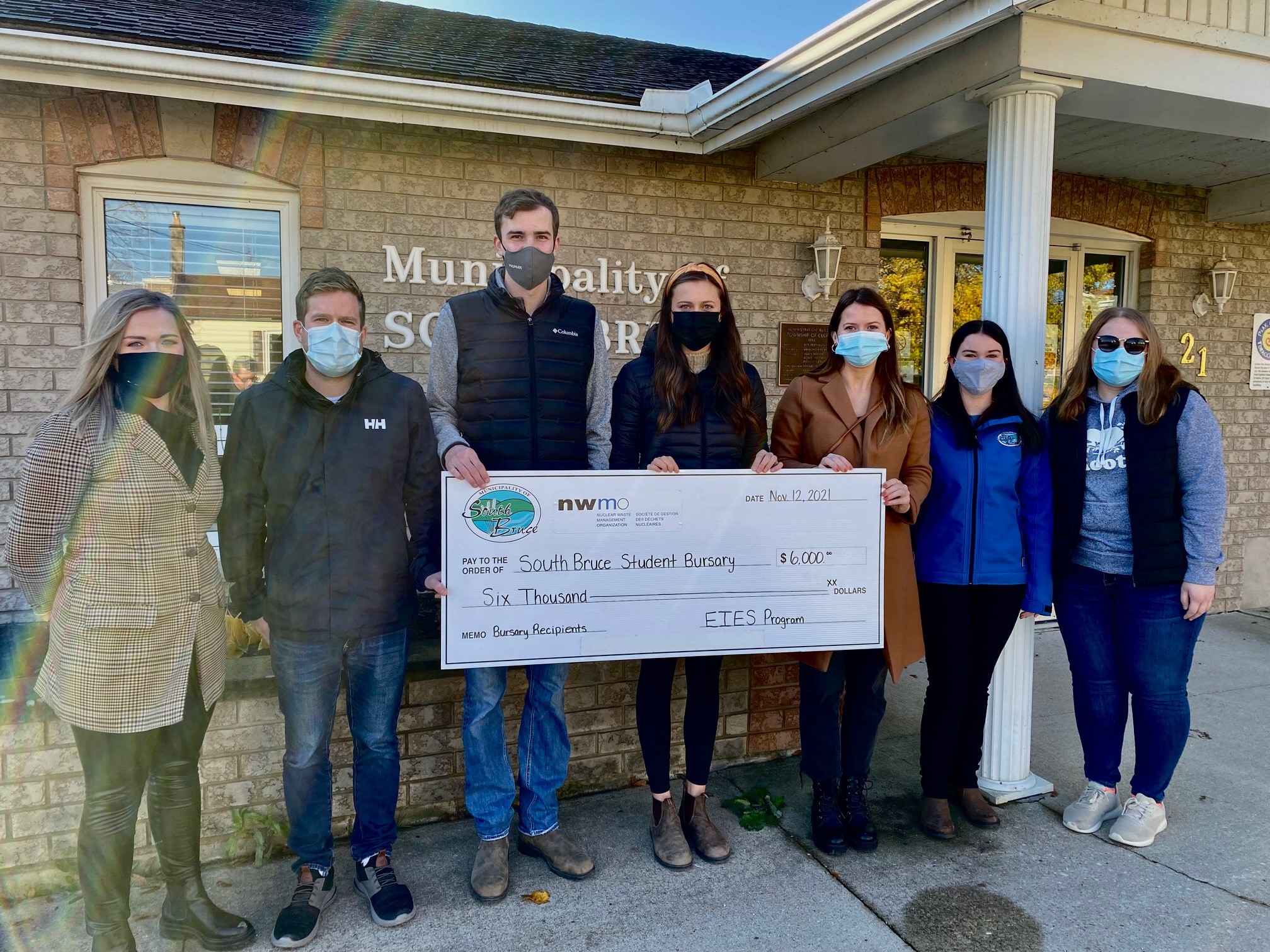SOUTH BRUCE – The Municipality of South Bruce, along with the Nuclear Waste Management Organization (NWMO), recently announced that six local post-secondary students have been selected as the 2021 recipients of the South Bruce Student Bursary.
Each received $1,000 to support their continued education.
“It was excellent that so many students from South Bruce came forward to apply for this year’s Bursary. All applicants showed a strong sense of ambition for their future careers, had creative ideas, and an ongoing sense of commitment to their community, which made the selection process both challenging and positive,” said Justin McKague, South Bruce Community Liaison Committee (CLC) member.
“It is our pleasure to work with the municipality to support local youth,” said Tareq Al-Zabet, director of site selection – South Bruce, for the NWMO. “We value our community and this is just one way we can support community well-being. I wish the very best to this year’s group of recipients as they continue to grow and work to accomplish goals through education and a deep dedication to local community.”
The successful applicants are as follows:
- Trystan Beninger, of Teeswater, who is studying in the Bachelor of Education program at the University of Western Ontario. She would like to return to South Bruce to lead a teaching career upon completion of her degree. Beninger has tutored many students, and has also lent her skill for photography and videography to various local causes.
- Dane Cronin, of Teeswater, who is in his final year of Teacher’s College at the University of Western Ontario. He aspires to return to the region to teach high school science, and if the NWMO project comes to South Bruce, he would like to support programming at the Centre of Expertise. He is actively involved in facilitating #NextGenNetwork activities in the community.
- Carly Frank, of Teeswater, who is majoring in chemistry with a specialization in eco-science at the University of Ottawa. She hopes to contribute to sustainable energy sources in her career. She has volunteered in the area for many years, including with the CanSkate program in Belmore, and Mental Health Matters Wingham.
- Darcy Frook, of Mildmay, who is currently majoring in environmental biology and technology at Nipissing University. She regularly fundraises and volunteers for community initiatives, such as Grey-Bruce Defeats Depression, and aspires to return to Bruce County and seek a career in municipal government.
- Brooke Jez, of Teeswater, who is in a business and human resources program at Fanshawe College. She has plans to further her education, both in business as well as social work, and then pursue a career that combines her passion for both. She has volunteered her time by organizing athletic activities for youth in her community.
- Kailee Liesemer, of Mildmay, who is enrolled in a master’s degree program at the University of Western Ontario, specializing in school and applied child psychology. She would one day like to open a psychology practice in the area. Liesemer has contributed to her community by volunteering with students and children, and her work at a local women’s shelter.
The six bursary recipients from across the municipality are demonstrably motivated to make South Bruce a better place through their aspirations, ideas and acts of community service.
Applicants – of which there were nearly 20 in total – were asked to submit a brief essay, providing their thoughts on what role each generation of South Bruce residents has in learning about the NWMO project. They were asked to elaborated on whether or not they felt that different generations should be engaged in different ways while learning about the project, and what some different ways to engage might look like.
The bursary applications were reviewed by representatives from the CLC, municipal staff, and the NWMO. As in previous years, the annual bursary is made possible with funding provided through the NWMO’s Early Investments in Education and Skills (EIES) program, which the CLC distributes.
The EIES program exists for capacity building purposes in communities that have ongoing participation in the site selection process for the Project to store Canada’s used nuclear fuel. It provides investments in education as well as training for youth and the community.



